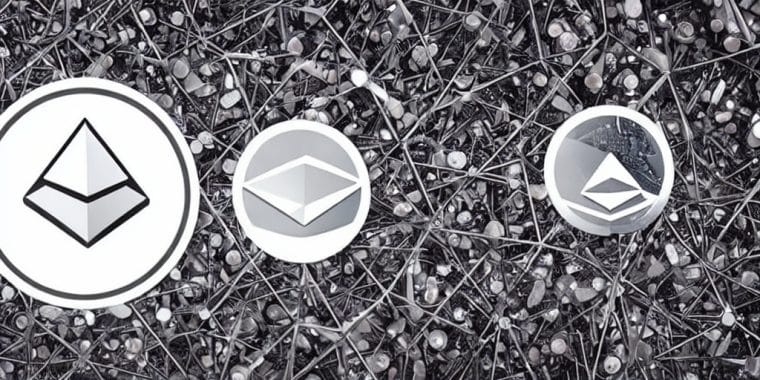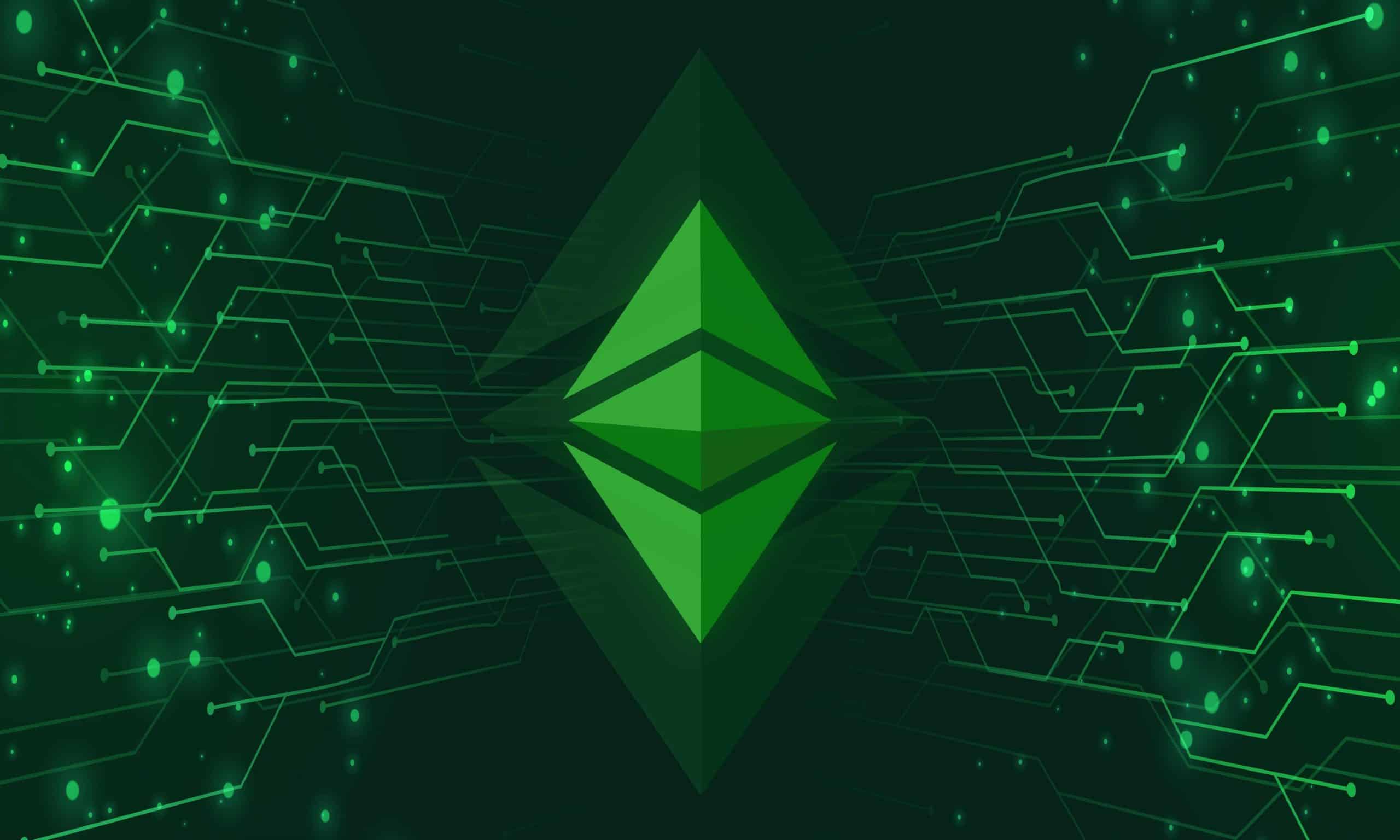The Ethereum network is gearing up for its most significant upgrade since the historic Merge in September 2022, when it transitioned from a proof-of-work to a proof-of-stake consensus mechanism.
Scheduled for March 13, 2024, the highly anticipated Dencun upgrade promises to tackle one of Ethereum’s most pressing challenges – scalability.
Composed of two separate upgrades, Cancun and Deneb, the Dencun upgrade introduces a series of Ethereum Improvement Proposals (EIPs) aimed at enhancing the network’s efficiency, security, and overall user experience.
At the heart of this amalgamation lies proto-danksharding, a cutting-edge concept designed to significantly reduce transaction fees and increase processing speed across the Ethereum ecosystem.
“This is the beginning of a new paradigm for how Ethereum operates”, said Karl Floersch, CEO of OP Labs, the organization that oversees Optimism, the popular Layer-2 network built parallel to Ethereum.
The anticipation surrounding the Dencun upgrade has already sparked a bullish sentiment in the cryptocurrency market.
In the lead-up to the event, Ether (ETH), the native token of the Ethereum network, surged above the $4,000 mark for the first time since December 2021, underscoring the enthusiasm and confidence from investors in the future of the smart contracts protocol.
Dencun Introduces Proto-Danksharding: The Scalability Game-Changer

At the core of the Dencun upgrade lies EIP-4844, also known as proto-danksharding. This innovative proposal introduces a method for temporarily storing transaction data in “ephemeral data blobs,” enabling Layer-2 rollups to process transactions more efficiently and cost-effectively.
James Wo, CEO and founder of Digital Finance Group, explained the concept to Cointelegraph well in an interview yesterday. saying,
“A key feature of the Dencun upgrade is the introduction of ephemeral data blobs with EIP-4844, also known as proto-danksharding. This development aims to reduce Layer-2 transaction fees by enhancing data availability, a crucial move toward establishing Ethereum as a scalable settlement layer”
Traditionally, all transaction data on the Ethereum network is stored permanently on the blockchain (in an extremely condensed form), contributing to its ever-growing size and slowing down the system in some ways. Proto-danksharding offers a solution by allowing rollups to temporarily store transaction data in these data blobs (instead of the normal expensive permanent storage), which are periodically deleted after a set time to prevent excessive bloat.
This innovative approach not only reduces the burden on the Ethereum mainnet to some degree, but the headline is that it dramatically increases speed and lowers gas fees for users transacting on Layer-2 networks like Optimism, Arbitrum, and Avalanche.
According to estimates from Superchain Savings Estimator, gas fees for a token swap on the Base L2 network could drop from around $0.58 to a mere $0.01 after the implementation of EIP-4844. This could make Layer-1 networks in competition with Ethereum nearly obsolete as Ethereum Layer-2s should be able to maximize all 3 ideals of blockchain tech: incredible security, massive scalability (meaning low fees and quick transactions), and decentralization. And that’s not even the only major update planned for Ethereum within the Dencun upgrade.
Enhancing Security and Cross-Chain Communication
While scalability takes center stage, the Dencun upgrade also introduces several EIPs aimed at enhancing the security and efficiency of the Ethereum network. One notable proposal is EIP-6780, which aims to disempower the controversial SELFDESTRUCT opcode, increasing the protection of user data and funds by limiting the termination of smart contracts.
Another significant improvement comes in the form of EIP-4788, which enhances communication between Ethereum’s execution and consensus layers.
By incorporating a summary from the consensus layer directly into the execution layer’s current block of data, this EIP streamlines the process of accessing information from the consensus layer, making the system more trustworthy and further supporting Ethereum-based applications.
Improving the Staking Experience
The Dencun upgrade also addresses the staking experience on the Ethereum network, introducing proposals like EIP-7044 and EIP-7045 to streamline the process of exiting and making attestations, respectively.
EIP-7044 aims to simplify earning rewards from Ethereum for those who prefer not to be full validators by making exit messages permanent, providing more security and peace of mind for delegated stakers.
Meanwhile, EIP-7045 seeks to improve the network’s efficiency and competitiveness by extending the time window for validators to submit attestations, allowing more validators to earn rewards and speeding up the confirmation of blocks on the blockchain.
Cost Efficiency and Sustainable Growth
The forthcoming upgrade introduces significant cost-efficiency improvements as well, with proposals such as EIP-5656 and EIP-1153 that focus on streamlining smart contract functionality and enhancing temporary storage techniques.
EIP-5656 introduces the MCOPY opcode, designed to boost the efficiency of memory copying within the Ethereum Virtual Machine (EVM), offering a more streamlined and effective approach compared to the previously cumbersome method.
Furthermore, EIP-7514 aims to manage the growth of validators on the Ethereum network by limiting the number of new validators that can join during each epoch (a set period in the network).
This change is designed to ensure steady growth, maintain security and decentralization, and prevent any single group from gaining too much control over the network.
Industry Perspectives: Cautious Optimism
As with any significant network upgrade, the Dencun upgrade has been met with a mix of excitement and cautious optimism from industry experts and stakeholders.
In a recent YouTube video, Max Wadington, a research analyst at Fidelity Digital Assets, provided various insights regarding the Dencun upgrade. He mentioned that data blobs will only be stored for 18 days and emphasized that gas fees may not be lowered in the short run as most people expect.
Meanwhile, Ethereum developer Tim Beiko echoed the sentiment that the Dencun upgrade will help decongest the mainnet due to the implementation of many of the proposed EIPs. Beiko said:
“This (Dencun upgrade) is a way where we can move more and more transaction activity off the main Ethereum network, which decongests it and then offers lower costs to users”
However, some industry experts have expressed concerns about the potential challenges and complexities associated with introducing new consensus mechanisms and architectural changes.
Rich Rines, an initial contributor to Core DAO, cautioned that observers must closely monitor Dencun’s progress after deployment as questions may arise about whether the upgrade’s objective was the correct goal in the first place.
Rines also noted that the potential for over-reliance on Layer-2 solutions could lead to fractured ecosystems and liquidity challenges. “Layer 2s may involve more trust assumptions and can have sub-optimal influence on the base layer if transactions and fees are increasingly taken off the base chain”, Rines warned.
Could Dencun Become a Catalyst for Mainstream Adoption?
Despite the concerns, many industry stakeholders believe that the Dencun upgrade represents a significant step towards mainstream adoption of the Ethereum network and the broader cryptocurrency ecosystem.
Robin Burkey, co-founder and CCO of Wormhole Foundation, expressed optimism about the upgrade’s potential impact on decentralized finance (DeFi) and overall interoperability, saying:
“The Dencun upgrade is undeniably a positive development for the crypto space. This upgrade will really enhance Ethereum’s scalability and security, which bodes well for defi and overall interoperability. This will result in cheaper and easier asset movement and more affordable transactions on Ethereum.”
As the Ethereum network continues to evolve and adapt to the ever-changing landscape of the cryptocurrency industry, the Dencun upgrade stands as a testament to the community’s commitment to continuous improvement and innovation.
While challenges and uncertainties remain, the anticipation surrounding this pivotal event underscores the belief that scalability and affordability are crucial for fostering widespread adoption and unlocking the true potential of decentralized technologies.
As the countdown to March 13 continues, the Ethereum community eagerly awaits the arrival of the Dencun upgrade with hopes that it will pave the way for a scalable, efficient, and secure future for the world’s second-largest blockchain network. With Ethereum’s Dencun upgrade on the horizon, keep your ETH safe with Best Wallet, favored by our experts for its robust security and ease-of-use.
